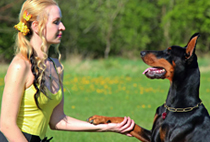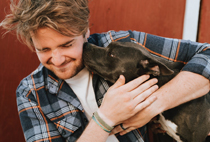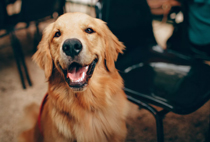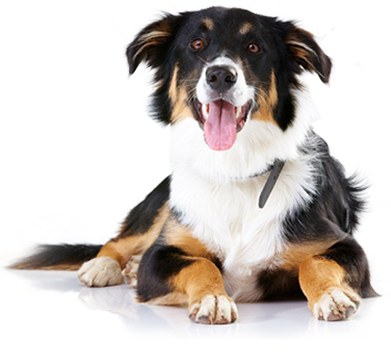Common Dog’s Behavior Problems & Solutions

- 25 September
- Posted by Admin
- Dogs, Cuddly Tails, News
At times, your furry little friend can demonstrate some unusual behavior, which can get you extremely worried. These behavior problems are prevalent in dogs. We present below some of the best tips to help your dog overcome common problematic behavior.
1. Separation Anxiety
This behavior is seen in dogs when they are left alone. In the owner's absence, some dogs exhibit aggressive behavior such as excessive barking, chewing, creating a mess by destroying the stuff around them. Even for a short duration, if the dog is separated from the owner, he may become sad and start to whine. When the owner returns, the dog may respond with a highly energetic welcome and becomes challenging to calm down. Such repetitive anxiety in dogs can shape more significant health problems like distress vocalization, restlessness, and anorexia.
Tips to overcome this behavior:
a) When going on a vacation and staying away from your dog for a longer duration, try to leave your dog with familiar people. Have him stay engaged with interactive playgroup sessions at the daycare centers. A busy and playful schedule can have him enjoy his time away from you.
b) Try leaving some clothes with your dog that you have previously worn. The scent from the clothes can help your dog efficiently deal with separation anxiety.
c) Give your dog or puppy crate training. Initially, leave your dog alone for 5 minutes with his toys and food, followed by increasing the time intervals. Such activity can have him get used to being alone and not develop any sudden anxiety in the future.
2. Reactive behavior
Your dog can become highly reactive in some situations and showcase bad behaviors like chewing, biting, disobeying, pulling the leash, and unnecessarily barking on anyone. Many pet parents find it challenging to calm their reactive dog, so we recommend always rewarding only your dog's positive and good behavior.
Tips to overcome this behavior:
a) Try to calm your dog with soft music.
b) Usually, dogs become aggressive if some high pitch sound is annoying or scaring them. Use ear muffs to protect your dog from such disturbing noises.
c) Your dog can be aggressive if any medical health issue is troubling him, such as any inner body pain that can have him respond violently. Always consult the vet experts in the case of any severe health problem. Your dog may also demonstrate aggressive behavior if he has harmed himself while playing.
3. Stealing and hiding the objects
Just imagine leaving important things on the floor by mistake, and the next moment you find them buried in your backyard. That is because when your dog likes something, he considers that object to belong to him.
Tips to overcome this behavior:
a) Always ensure to have important and delicate objects inaccessible to your dog and provide him with enough toys to chew, hide, or bury in the backyard. Many dog owners have bought a sandbox for their dogs to dig and hide objects.
b) If you find him digging your backyard, say no and don't reward your dog for this behavior. You can always try to distract him with other toys. If you see him not listening to you for dropping the object he is carrying, don't chase him as it can begin a game. Just go behind him unemotionally and ask him to drop the object he is holding.
c) Try to have your dog trained to follow the command, "Drop It".
Conclusion
As a pet parent, you must make attempts to correct any bad behavior in your dog. Always feel free to consult a professional dog trainer or vet experts for any assistance. You can also interact with pet owners to learn what methods they took to overcome such behavior in their dog over any community platform.
We love your dog as much as you do! Click here to book a trusted and pre-verified pet sitter or dog walker for your furry baby when you away!
Thanks,
CuddlyTails team







